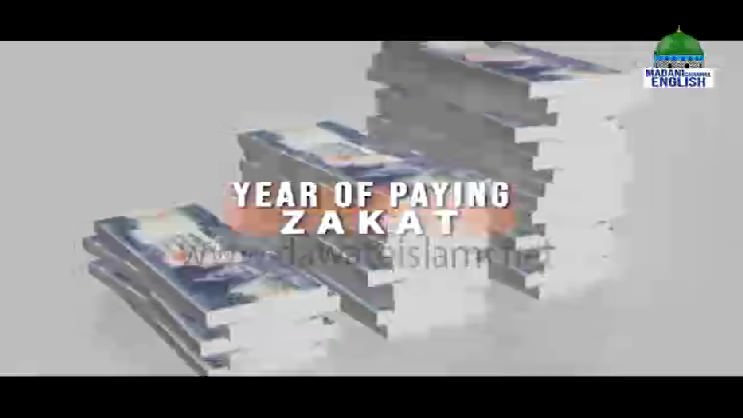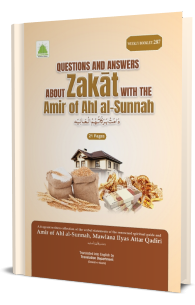
Madani Muzakarah
1. Offering the six nafl units of 15th Shaʿbān at home
Q: Can we offer the six nafl units of the 15th of Shaʿbān at home?
A: Yes. To learn the virtues the 15th of Shaʿbān and the method of offering these six units, read Maktaba-tul-Madinah’s 35-page booklet The Month of My Prophet صَلَّى الـلّٰـهُ عَلَيْهِ وَاٰلِهٖ وَسَلَّم.[1]
2. Paying zakat on behalf of one’s son
Q: My son has not paid zakat this year; can I pay his zakat on his behalf?
A: If a son has not paid his zakat and his father wishes to pay it on his behalf, the latter should take his permission. Without taking permission, zakat will not be considered given in this regard. If the son gives permission, the money paid by the father will be zakat on behalf of the son.[2]
3. Mosquito blood on hand and clothing during salah
Q: Whilst I was offering prayer, a mosquito landed on my cheek. I struck it with my hand and killed it, but its blood came onto my cheek and hand. Was my salah valid?
A: The amount of blood in a mosquito is relatively little and its blood is not impure.[3] The blood of a mosquito spreading on your hand etc., during the salah, has no effect on its validity.[4]
4. Kalimah ṭayyibah in the Quran
Q: Is the kalimah ṭayyibah mentioned in the Quran?
A: It is not mentioned altogether in one place in the Quran. Yet, it is mentioned in separate places. In one verse:
لَاۤ اِلٰہَ اِلَّا اللّٰہُ ۙ
There is no God except Allah[5]
In another verse:
مُحَمَّدٌ رَّسُوۡلُ اللّٰہِ ؕ
Muhammad is the Messenger of Allah[6]
It is however mentioned together in hadith.[7]
5. Sounds of music from neighbours
Q: If there are sounds of drums and music because of a neighbour’s wedding, what should we do?
A: If you are unable to prevent the music and drums, you should consider it wrong in your heart and avoid the sound as much as possible by closing windows etc. What more can a person do? Those who do such things should reflect. First of all, these are sinful acts, and secondly these sins are causing harm to neighbours, which is another sin itself.[8]
6. Putting seeds for birds in place of charity
Q: How is it for a Muslim to buy seeds and put them for birds in place of giving charity?
A: If charity here refers to ṣadaqah wājibah, such as zakat for example, and seeds are purchased from that zakat money and fed to birds, then zakat will not be performed. Seeds should still be fed to birds as voluntary charity, as this is a virtuous act which earns reward.[9]
7. Beginning of the funeral salah
Q: When did the funeral salah become obligatory?
A: Funeral salah began taking place during the time of Prophet Ādam عَـلَيْـهِ الـسَّـلاَم, as angels recited four takbīrs upon his funeral. The obligation of the funeral salah was revealed in Madinah. The Companion Asʿad b. Zurārah رَضِىَ الـلّٰـهُ عَـنْهُ passed away at the end of the ninth month after hijrah. He was the very first Companion whose funeral salah was led by the final Prophet of Allah صَلَّى الـلّٰـهُ عَلَيْهِ وَاٰلِهٖ وَسَلَّم.[10]
8. Preparing one’s own grave
Q: Can a person prepare his own grave during his lifetime?
A: Imam Aḥmad Razā Khān رَحْمَةُ الـلّٰـهِ عَـلَيْه states, “Preparing a grave is futile as no one knows where they will die.”[11] For example, a person has a grave dug in Pakistan, yet he passes away in Madinah and is destined to be interred in Jannat al-Baqīʿ. Every believer should desire to be buried there.[12]
9. Living apart prior to rukhṣatī
Q: If a couple have performed their nikāḥ ceremony, but rukhṣatī (the woman leaving her home officially) has not yet taken place; are they non-maḥrams to one another?
A: If nikāḥ has taken place in accordance with Islamic law, it is not a sin to see each other. Yet, one should act in accordance with societal norms, and stay separate from one another as long as rukhṣatī has not taken place. This will keep families happy and avoid problems from arising.[13]
10. Wife ridiculing her husband
Q: What is the ruling regarding a woman who ridicules her husband repeatedly?
A: Such a woman is sinful. It is necessary upon her to repent and ask her husband for forgiveness. A woman should listen to her husband.[14]
11. Not marrying due to fearing expenditure
Q: What do you say concerning a person who avoids marriage, because he thinks that running a household is not easy and rights increase a lot after marriage?
A: If a suitable match is found and he can burden the expenditure of marriage, provide accommodation and the necessary maintenance, i.e., food, water, etc., he should marry. His wife will bring her own decreed provision and if children are born, they too will bring their ordained sustenance. It is mentioned in the Quran:
وَ لَا تَقۡتُلُوۡۤا اَوۡلَادَکُمۡ خَشۡیَۃَ اِمۡلَاقٍ ؕ نَحۡنُ نَرۡزُقُہُمۡ وَ اِیَّاکُمۡ ؕ اِنَّ قَتۡلَہُمۡ کَانَ خِطۡاً کَبِیۡرًا )۳۱(
Do not kill your children for fear of poverty. We shall provide them with sustenance and you too. Indeed, killing them is a major sin.[15]
Remember! Allah Almighty is the One Who provides all sustenance.[16]
[1] Madani Muzakara, 11th Shaʿbān 1441 Ah
[2] Madani Muzakara, after tarāwīḥ salah, 11th Ramadan 1441 AH
[3] Bahār-i-Sharīʿat, vol. 1, p. 392
[4] Madani Muzakara, after tarāwīḥ salah, 19th Ramadan 1441 AH
[5] Al-Quran, part 23, Al- Ṣaffāt, verse 35; translation from Kanz al-ʿIrfān
[6] Al-Quran, part 26, Al-Fatḥ, verse 29; translation from Kanz al-ʿIrfān
[7] Ṣaḥīḥ Bukhārī, vol. 1, p. 14, hadith 8; Madani Muzakara, after tarāwīḥ salah, 17th Ramadan 1441 AH
[8] Madani Muzakara, after tarāwīḥ salah, 15th Ramadan 1441 AH
[9] Madani Muzakara, after ʿaṣr salah, 13th Ramadan 1441 AH
[10] Fatāwā Riḍawiyya, vol. 5, pp. 375-376; Madani Muzakara, after tarāwīḥ salah, 16th Ramadan 1441 AH
[11] Fatāwā Riḍawiyya, vol. 9, p. 265
[12] Madani Muzakara, after tarāwīḥ salah, 17th Ramadan 1441 AH
[13] Madani Muzakara, after ʿaṣr salah, 14th Ramadan 1441 AH
[14] Madani Muzakara, after tarāwīḥ salah, 14th Ramadan 1441 AH
[15] Al-Quran, part 15, Banī Isrāīl, verse 31; translation from Kanz al-ʿIrfān
[16] Madani Muzakara, after tarāwīḥ salah, 11th Ramadan 1441 AH


















Comments